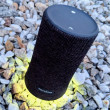Review: Motorola ic402
If there's a defining feature of Motorola iDEN phones, it's their bulk. There's simply no polite way to say it. iDEN phones are typically thick, brick-y blocks of hardware. The ic402 is different. Like the ic502, it lacks the rubberized protective strips and chunkiness that are typical of iDEN phones and trades them for a sleeker, more stylish design that is found on today's standard feature phones and the iDEN phones used by Boost. But is it sexy enough?
When you first take the ic402 out of its box, what strikes you is how "normal" it looks. Putting it next to an LG VX8300 clamshell we had laying around, the two were surprisingly similar in appearance and dimensions. The lines in the ic402's plastic almost emulate a spaceship or race car. The silver, gray and black color scheme adds to this impression. While it's not as trim as some phones, slipping the ic402 into your jean pocket isn't unbearable, even if you wear tighter jeans. Still, it is slighter thicker than the average clamshell, and this is most noticeable when you're trying to grip it in your hand. Getting your fingers all the way around it is difficult even if you have larger hands.
The other thing you notice is how solid it is. Not that this means it is heavy. In fact, the LG VX8300 was heavier. Holding it in your hand, though, it feels strong, like it can take a lickin' and keep on tickin'. The external plastic shell is smooth. Nothing juts out or sticks your palm, no seams catch your skin. It's put together tight. There was absolutely no side-to-side play with the hinge.
Taking a quick tour around the outside, you immediately notice that there's no external display, which was present on the ic502. This means you'll have to open it to check for messages, check the time, see what sort of signal strength you have, etc. The ic502, adds a monochrome external display, allowing you to check your status, as well as make walkie talkie calls, with the lid closed. The left side of the ic402 hosts the rubber volume keys and Push To Talk (PTT) button, which has little nubs on it to help your finger find it and grip it. There are no buttons at all on the right side. The top is where you'll find the speakerphone key, a rubberized hatch protecting the headphone jack, and the Smart Key. The external antenna protrudes from the top about an inch, and can be pulled out an additional 3 inches. The USB charge port is located on the bottom of the phone, and is also covered by a rubber hatch. The front and back are simply smooth plastic.
Opening it up, you'll find the screen and typical iDEN keypad. The screen itself is smallish and the keypad is just huge. All the individual keys are large and spaced far apart, which forces your thumb to travel a lot to punch in numbers and slows you down. It was obviously designed with people who might be wearing gloves in mind. Attempting to compose text messages swiftly was not entirely successful, as we were faster on other keypads.
The keypad itself is ever-so-slightly recessed from the surface and the keys are flat with no texture to them The keys feel a bit cheap and make an unpleasant "clacking" sound when you press them. The action was minimal and feedback was acceptable, but not great. The loud sound provided more feedback than what you feel through your thumb. The D-pad is a 4-way button that is also large. Your thumb really has to move around to reach all 4 directionals, which makes for inefficient navigating. The central menu button is small, by comparison, and is the only button on the phone that is difficult to interact with. Considering how large the rest of the keypad is, this really sticks out, and wouldn't seem to be all that usable for people wearing gloves.


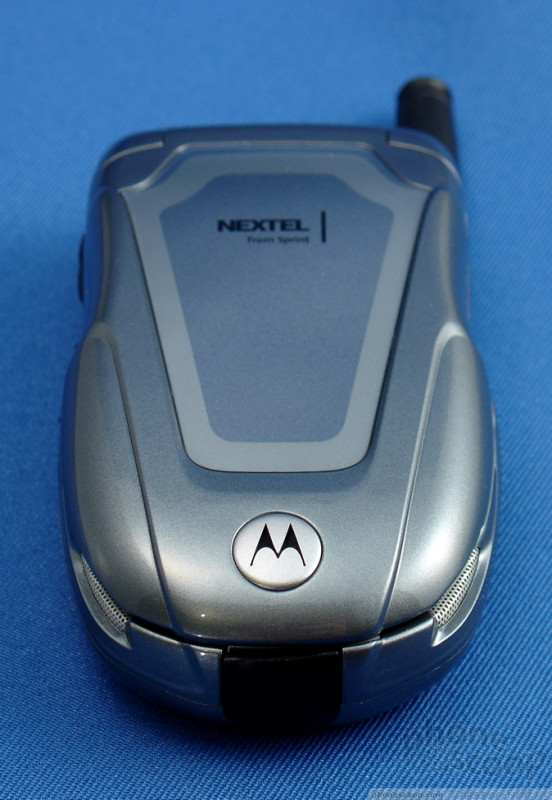

















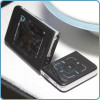 CES 2007 + iPhone
CES 2007 + iPhone
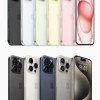 iPhone 15 Series Goes All-In on USB-C and Dynamic Island
iPhone 15 Series Goes All-In on USB-C and Dynamic Island
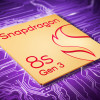 Qualcomm Expands Snapdragon 8 Series to Cover More Price Points
Qualcomm Expands Snapdragon 8 Series to Cover More Price Points
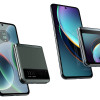 Motorola Gets Serious About Foldables with New RAZR Lineup
Motorola Gets Serious About Foldables with New RAZR Lineup
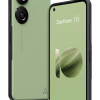 ASUS Zenfone 10 Flagship Keeps it Small
ASUS Zenfone 10 Flagship Keeps it Small
 Motorola ic402 Blend
Motorola ic402 Blend

